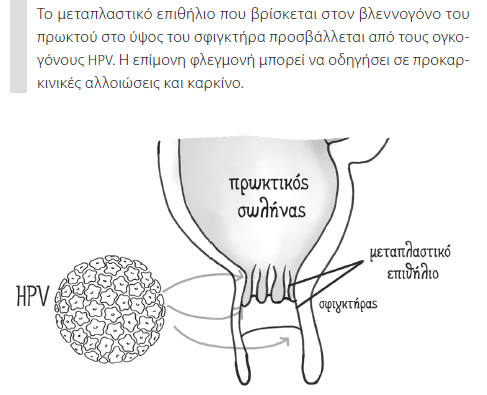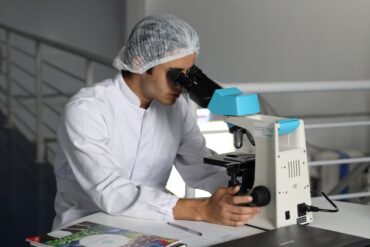
What is the cause of anal cancer?
The majority of anal cancers are caused by oncogenic types of HPV.
How common is anal cancer?
Cancers of the anal canal are currently 4% of all cancers of the large intestine. It is not, therefore, a common cancer. However, there has been an increase in the incidence of HPV-related anal cancer.
According to the American Cancer Society, there were 7210 new anal cancer cases in 2014. Of these, 4550 cases were in women and 2660 in men.
It is estimated that the risk for anal cancer in one’s lifetime is 1:500 in the general population. As the above statistical data show, the risk is higher in women compared to men. It appears, however, that certain individuals are at a greater risk of anal cancer.
At what age does anal cancer usually appear?
Anal cancer is rare in people younger than 35 years of age. It mainly affects adults, above the age of 50. The average age at diagnosis is 60 years.
What are the signs and symptoms of anal cancer?
There are usually no symptoms in early stages. Later on, there may be:
- Anal bleeding.
- Bloody discharge after anal intercourse.
- Impression or palpation of a mass in the anal canal area.
- Itching and mucous or purulent anal discharge.
- Changes in bowel movements.
- Palpation of lymph nodes.
What is the connection between anal warts and anal cancer?
Anal warts are usually caused by HPV 6 and 11. These types of HPV are low-risk and do not cause anal cancer.
It has been observed, however, that people with a history of anal warts have a higher possibility of anal cancer. It is believed that, apart from low-risk types of HPV, they were also infected by high-risk types of HPV, and this is why they are at an increased risk (Figure above).
What tests are recommended for the prevention of anal cancer?
- Clinical examination by the doctor (digital examination).
- Pap test or HPV test from the anal canal.
- High-Resolution anoscopy and biopsies.
Can anal cancer be prevented?
It appears that anal cancer can be prevented, and prevention programs are already under way. Vaccination before becoming sexually active can prevent 95% of HPV-related anal cancers.
Even though the physical history of carcinogenesis from HPV in the anus has not been fully clarified, it is believed that precancerous lesions usually appear first (HSIL/AIN2,3), and these must be identified and treated.
The groups referred for preventive annual check-ups are:
- HIV-positive patients (AIDS)
- Homosexual men
- Individuals with a history of anal warts
- Women with a history of HSIL in the cervix, vagina or vulva and
- Individuals under chronic pharmaceutical immunosuppression






